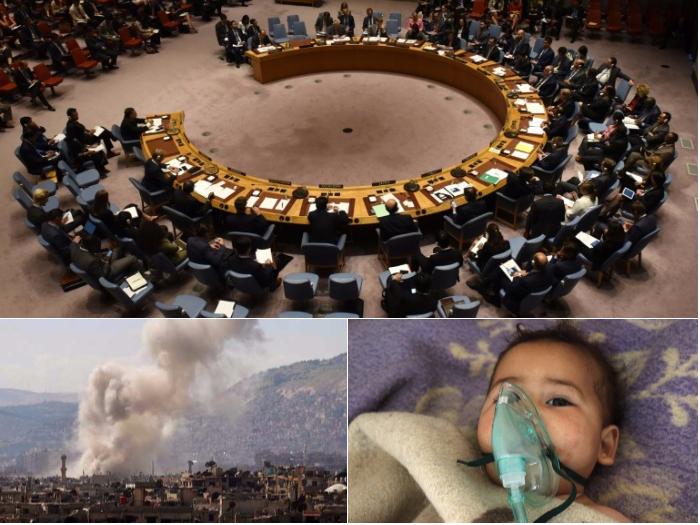United Nation to vote on extending Syria gas attacks investigation
New York, October 24: The United Nations Security Council on Tuesday will vote on whether to extend an international investigation of chemical weapons attacks in Syria. Notably, the utilization of chemical weapons were common in Middle East countries to combat terrorists, anti-national elements, political rivalries, political wars etc. is a very common phenomenon in Syria.

Notably, the members of United Nations Security Council will vote on whether to extend an international investigation of chemical weapons attacks in Syria, a measure that can be vetoed by Russia. Earlier, the United States requested a vote on a draft resolution it presented last week that would allow the UN-Organisation for the Prohibition of Chemical Weapons (OPCW) panel to continue the investigation for one more year to find out who is behind chlorine gas attacks in Syria’s six-year civil war.
Interestingly, the measure proposed by the US is facing a possible veto from Russia, Syria's ally, which wants to first see a report due on Thursday on a sarin gas attack in Khan Sheikhun before deciding on the fate of the inquiry.
US Ambassador Nikki Haley has urged the council to act now to support the continued work of the panel, known as the Joint Investigative Mechanism (JIM). Its mandate ends on November 18. In February, a resolution put forward by the United States, Britain and France to impose sanctions on Syrian officials who were allegedly involved in those chlorine attacks was vetoed by Russia and China.
The United Nations (UN) investigators traveled to an airbase in Syria to probe the recent sarin gas attack on Khan Sheikhoun earlier this year. The action from UN came after the United States and its allies alleged Damascus of using the sarin gas attack on Khan Sheikhoun earlier this year in which 80 civilians were killed while 500 others were injured.
However, the United States later launched a missile attack on Shayrat in April after concluding that Syrian aircraft loaded with sarin gas, had departed from that airfield to attack Khan Sheikhoun. Meanwhile, the Syrian government has denied all the allegations and reiterated of not using any chemical weapons after a 2013 agreement under which it pledged to surrender them.
The joint investigation by the United Nations and the Organisation for the Prohibition of Chemical Weapons (OPCW) was set up in 2015 by the Security Council to determine who is behind chemical weapons use in Syria. The JIM has already determined that Syrian regime forces were responsible for chlorine attacks on three villages in 2014 and 2015 and that Islamic State militants used mustard gas in 2015.
Background:
Seeing the dangerous effects, the international community came forward to protect humanity and therefore banned the use of chemical weapons. However, it is unfortunate that still chemical weapons are used during the war, proxy war etc in Syria.